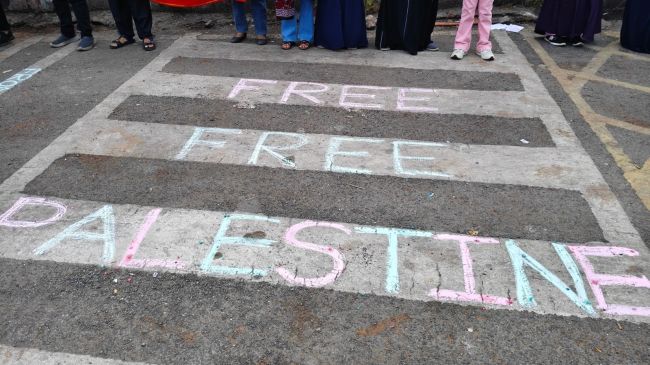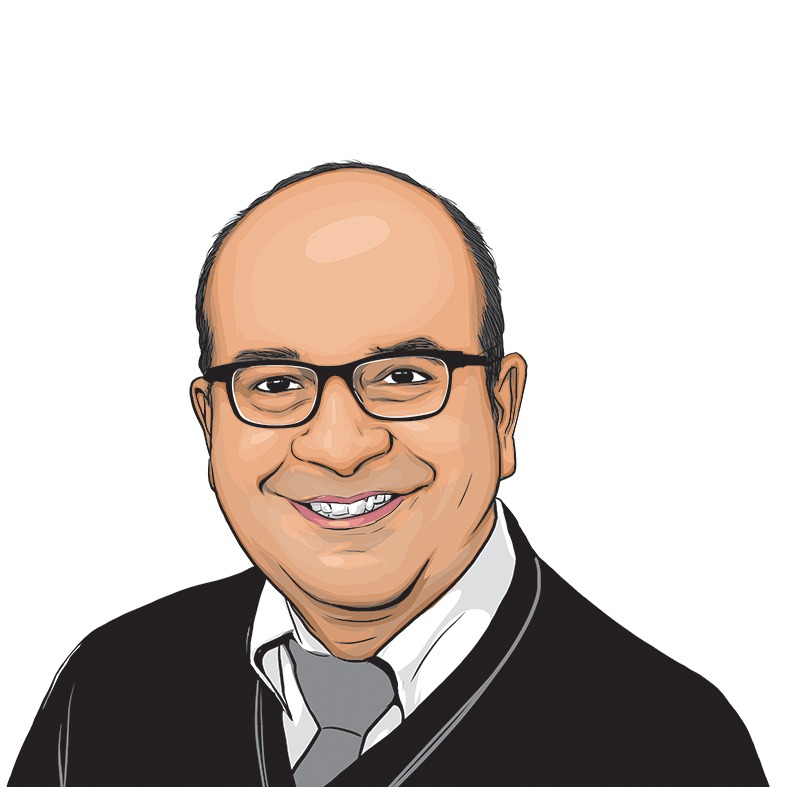Opinion At Gaza Peace Summit, India must speak up
This conference must not become another that disinfect conscience, normalise occupation, and rebrand siege as stability. It must address one fundamental issue: Palestinians have no protection architecture
 The safety of one community cannot rest on the ruin of another. When a child in Tel Aviv and a child in Khan Younis both flinch at the sound of planes, humanity itself is under siege.
The safety of one community cannot rest on the ruin of another. When a child in Tel Aviv and a child in Khan Younis both flinch at the sound of planes, humanity itself is under siege. Today’s Gaza Peace Summit at Sharm el-Sheikh — called by US President Donald Trump and Egyptian President Abdel Fattah el-Sisi, with an open invitation to Prime Minister Narendra Modi — arrives not as an act of vision but of desperation. The world has watched too long as Gaza became an open-air prison, its civilians crushed between military vengeance and diplomatic paralysis. The air is thick with the ghosts of children, journalists, medics, teachers, poets — entire bloodlines erased. If the 20th century ended with the slogan “Never Again,” this century risks being remembered for its silent addendum: “Except in Gaza”.
As the first batch of hostages are handed over to the Red Cross by Hamas, there are, broadly, three possible outcomes to this summit. First, that the meeting leads to a verifiable ceasefire, monitored by international observers, backed by mechanisms of accountability and reconstruction rather than vague promises.
Second, it becomes a forum where India, Egypt, and a post-Trump America converge on something unprecedented — a jointly mandated civilian protection force under UN or multilateral auspices. A force not to occupy or divide Gaza but to guarantee that civilians, hospitals, schools, and journalists are shielded from annihilation. The third is the danger of political theatre — a pageant of handshakes that legitimises mass killing as “peace enforcement.” We have seen this before: Conferences that disinfect conscience, normalise occupation, and rebrand siege as stability.
Let us be clear: The October 7 attack by Hamas was an act of terrorism, a massacre that targeted innocents and tore through the moral fabric of resistance. It deserves universal condemnation, not rationalisation. The deliberate killing and hostage-taking of civilians cannot be excused by history, grievance, or geography.
But moral clarity demands consistency. Any conversation about peace that begins on October 7 is already morally amputated. The violence that erupted that day did not begin in 2023. Generations of Palestinians have been born and buried stateless.
It must also be said: The Holocaust — one of humanity’s darkest crimes — was committed not by Arabs, but by Christian Europe. Today, we witness an inversion of empathy: The Holocaust survivor’s trauma has been institutionalised into a military doctrine that justifies pre-emptive annihilation. The descendants of one genocide are now told that their safety depends on the slow destruction of another people.
But Jews and Muslims of the Holy Land are both Semitic, both indigenous, both heirs to Abraham’s soil. The question is not whose suffering is older or holier but whether we will recognise that all children deserve to live unafraid.
To move from ceasefire to peace, we must confront the central moral and political gap: Palestinians have no protection architecture. An actual path forward could take shape around what I would call the “Palestinian Civilian Protection Mission” (PCPM) — a multinational security and humanitarian mechanism mandated under international law, perhaps modeled after hybrid missions in Bosnia or East Timor but with regional participation from Egypt, Jordan, Indonesia, India, and the African Union.
Its core features could include: A UN-authorised or General Assembly-endorsed mandate under Chapter VII, empowering peacekeepers to physically protect civilians and critical infrastructure; phased Israeli withdrawal from populated Palestinian areas, synchronised with the deployment of the PCPM, monitored by satellite and AI-based verification tools; creation of a professional, locally vetted Palestinian civilian police, trained jointly by neutral states, to assume internal law-and-order duties under transparent oversight; human rights ombuds offices and real-time independent investigations into all allegations of war crimes, regardless of perpetrator.
This is not utopian. The world has deployed international forces in Bosnia, Sierra Leone, and East Timor — each with imperfect but real results. Gaza deserves no less than the protection that Europe once demanded for itself.
Nelson Mandela’s advisor and Nobel Laureate Desmond Tutu, when he visited Palestine in 2000 said that even the worst of apartheid in South Africa didn’t see the daily humiliation that Palestinians go through by the IDF in Israel. Thus, even before political resolution, life itself must resume its rhythm. The immediate horizon of peace should not be abstract negotiation rooms but the checkpoints, hospitals, classrooms, and farms of Gaza and the West Bank.
A credible summit outcome would commit to freedom of movement, that is, human corridors and monitored crossings allowing Palestinians to travel for work, study, and health without humiliation. There must be an international reconstruction jobs programs, unfreezing of tax revenues and the reopening of trade through Egypt and Jordan. For the revival of health and education, hospitals and clinics have to be rebuilt and schools must be protected as demilitarised zones. These are not luxuries, they are the minimum scaffolds of hope. Without them, no ceasefire will hold, because despair will always reload itself.
The safety of one community cannot rest on the ruin of another. When a child in Tel Aviv and a child in Khan Younis both flinch at the sound of planes, humanity itself is under siege. The task of leaders — from Washington to New Delhi — is to ensure that one people’s trauma is not perpetually weaponised against another’s right to exist.
India once spoke for the voiceless colonised; it must now speak for the unprotected stateless. India can propose — not posture — a protection framework rooted in its own peacekeeping legacy and its moral capital among the Global South.
In Sharm el-Sheikh, the world will measure not only who attends, but who dares to protect the living. The time has come for a coalition of conscience — to defend the universal right to breathe beneath the same sun, whether one calls God Yahweh, Allah, Jesus, Krishna, Musa, or nothing at all.
The writer serves as the Global Representative of the Grain from Ukraine Programme run from President Zelenskyy’s Office, with the help of the WFP. He also worked at the United Nations around the world for 25 years






